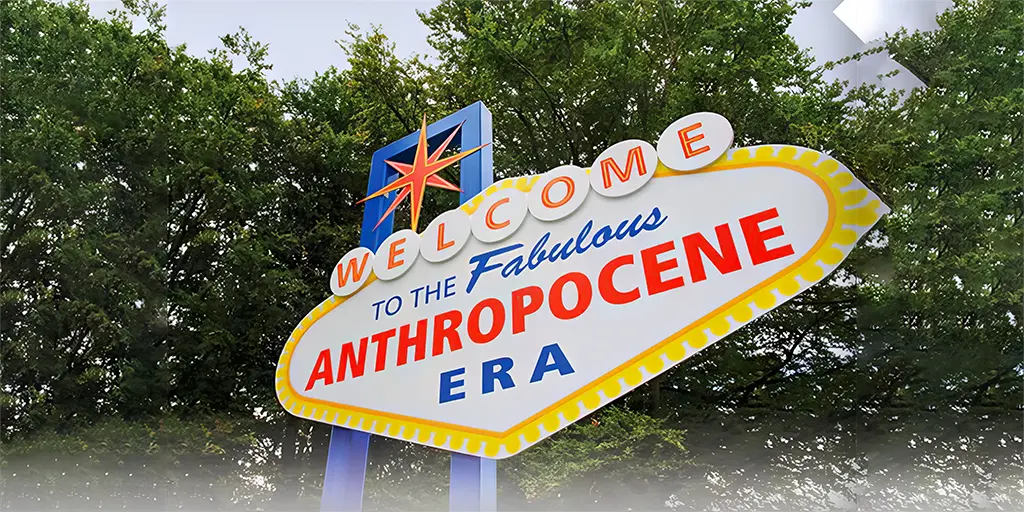Guest “Zombie killing” by David Middleton
Geology says the Anthropocene is horst schist…
March 20, 2024
The Anthropocene
In 2001 the atmospheric chemist, Paul Crutzen, proposed that human activity was impacting natural environmental conditions to the extent that we had effectively left the natural stable conditions of the Holocene and moved into a new interval that he named the Anthropocene. In response to this suggestion, the Anthropocene Working Group (AWG) was established in 2009 on the initiative of Phil Gibbard (PLG: the then chair of the Subcommission on Quaternary Stratigraphy; SQS). The remit of the Working Group was to examine the evidence for human induced climate change as reflected in the recent geological record, and to determine whether this was sufficiently compelling for a new stratigraphic unit to be included in the Geological Time Scale (GTS) and, if so, at what rank. The Working Group, initially led by Jan Zalasiewicz (JAZ) and latterly by Colin Waters (CW), deliberated for 15 years before finally submitting a report to the SQS in late October 2023.
[…]
Following standard ICS procedure, it was expected that there would be 30 days allotted for the discussion of the AWG proposal, to be followed by 30 days for voting. Because of a possible conflict of interest, JAZ and MAH recused themselves from the administration of the voting process (although both participated in the discussion), and the discussion and ballot were conducted by the 1st vice-chair Professor Liping Zhou (Beijing University: LPZ) and Professor Adele Bertini (University of Firenze: AB), and who ensured that the process adhered strictly to the rules of ICS. However, when the discussion period ended and the Secretary moved to call a vote, both JAZ and MAH objected saying that the discussion period had been of insufficient length and that additional information on the Anthropocene proposal had been excluded. This did not find favour with a substantial number of SQS members who were anxious to move forward to the ballot. In order to meet the request for more time, however, LPZ and AB agreed to extend the discussion period, which was initially expected to end in late December, until the end of January. Voting finally began on 4th February, in spite of further objections from JAZ and MAH based on their view that adequate time was not allowed for discussion. It ended on 4th March at which point the results were declared.
The outcome was a decisive rejection of the Anthropocene proposal: 4 votes in favour; 12 votes against; and 3 abstentions. Three members did not vote, including JAZ and MAH, who then began a campaign questioning the legitimacy of the vote on procedural grounds and alleged contravention the ICS statutes. It is important to stress that there was no question of impropriety against either LPZ or AB, both of whom acted with complete integrity throughout a difficult process and who carried out their duties fully in accordance with the statutory requirements of ICS. Nor can the integrity of the SQS membership be called into question. All who participated in the process are geological scientists of the highest calibre, from a range of countries, and with wide expertise in
Quaternary stratigraphy and chronology. It is clear from the comments that were made during the course of the discussion period, that many were unconvinced by the arguments in the AWG proposal, and their misgivings are clearly reflected in the decisive nature of the voting outcome.The vote of the SQS has been recognized as valid by the ICS Executive, and that recognition has been near unanimously supported (15 yes, 1 abstention, 1 conflict of interest) by the chairs of the seventeen IUGS subcommissions, who are the ICS voting members. Although their proposal has been decisively rejected, the AWG has performed an important service to the scientific community by assembling a wide body of data on human impacts on global systems, and this database will be an essential source of reference well into the future. Moreover, the Anthropocene as a concept will continue to be widely used not only by Earth and environmental scientists, but also by social scientists, politicians and economists, as well as by the public at large. As such, it will remain an invaluable descriptor in human-environment interactions. But it will not be recognised as a formal geological term but will more usefully be employed informally in future discussions of the anthropogenic impacts on Earth’s climatic and environmental systems.
[…]
International Union of Geological Sciences
The PNAS paper cited In the I effing love science article features this graphic:
OK… Anthropocene: 1940-1980 RIP.
Next?
Reference
Kuwae M, Yokoyama Y, Tims S, Froehlich M, Fifield LK, Aze T, Tsugeki N, Doi H, Saito Y. Toward defining the Anthropocene onset using a rapid increase in anthropogenic fingerprints in global geological archives. Proc Natl Acad Sci U S A. 2024 Oct 8;121(41):e2313098121. doi: 10.1073/pnas.2313098121. Epub 2024 Sep 23. PMID: 39312679.
Related


